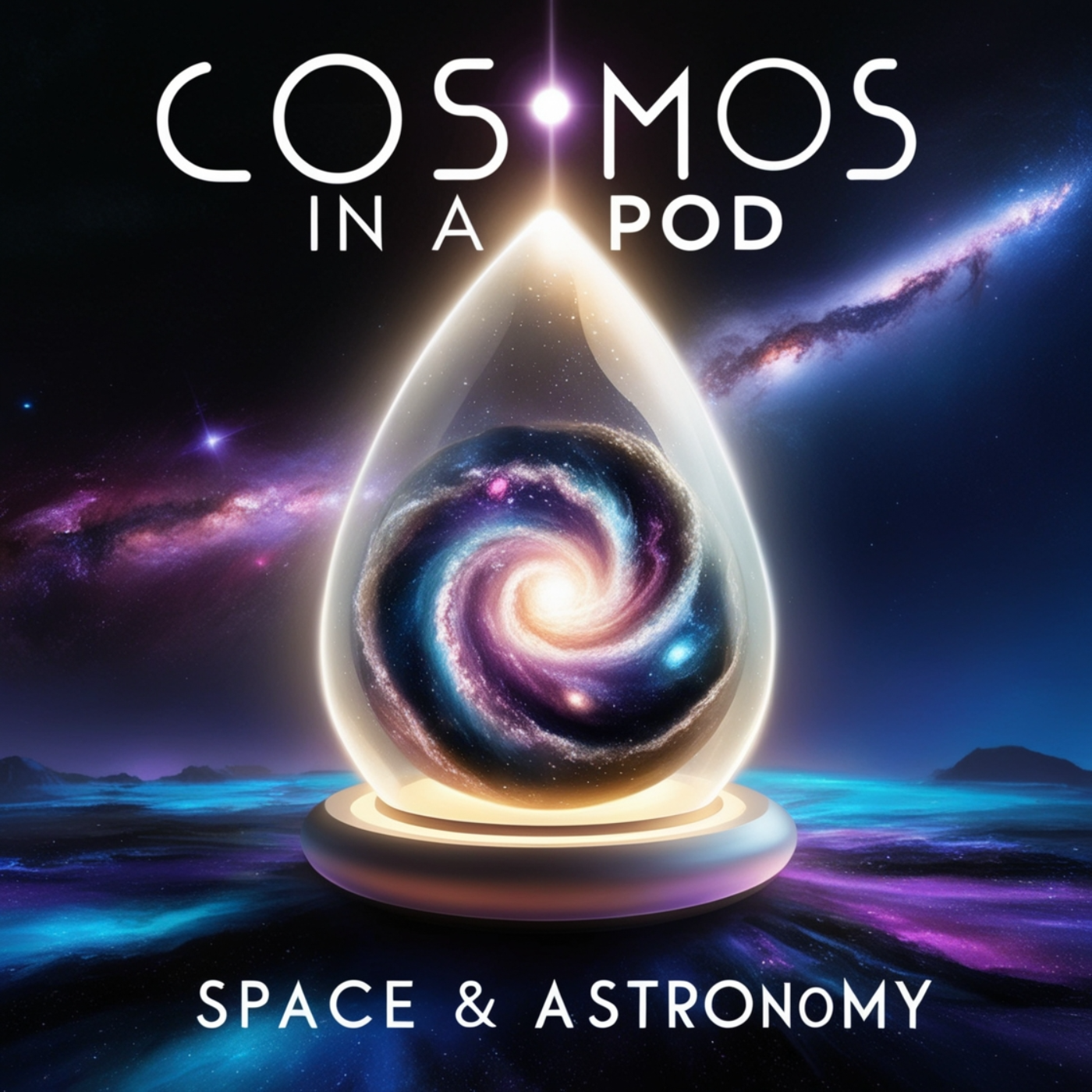The Birth of Darkness: How Black Holes Form and Shape the Cosmos | Cosmos in a Pod S1E24
- Author
- Amitesh Surwar
- Published
- Mon 16 Dec 2024
- Episode Link
- https://rss.com/podcasts/cosmos-in-a-pod/1802586
Welcome to Cosmos in a Pod! I’m your host, Amitesh, and today we’re diving into one of the most fascinating phenomena in the universe: black holes. These cosmic enigmas are born from the deaths of massive stars and play a vital role in shaping the galaxies they inhabit. Let’s explore their formation, the conditions required to create them, and their profound impact on the cosmos.
Episode Highlights:
What Are Black Holes?
- Regions of spacetime with gravity so strong that nothing—not even light—can escape.
- Composed of two key features:
- Singularity: A point of infinite density.
- Event Horizon: The boundary beyond which nothing can return.
The Life Cycle of a Massive Star:
- Main Sequence: Stars burn hydrogen to helium through fusion.
- Red Supergiant: Heavier elements form as the star nears the end of its life.
- Core Collapse: The core collapses, triggering a supernova explosion and forming a neutron star or black hole.
Formation of Stellar-Mass Black Holes:
- If the collapsed core exceeds about three solar masses, it becomes a black hole.
- The event horizon marks the birth of the black hole, and the collapsing material forms a singularity.
Supermassive Black Holes:
- Found at the centers of galaxies, with masses millions to billions of times that of the Sun.
- Theories of formation include:
- Direct collapse of early gas clouds.
- Mergers of smaller black holes.
- Gradual growth by accretion of matter.
Primordial Black Holes:
- A theoretical class of black holes that might have formed shortly after the Big Bang.
- Remain an intriguing possibility for explaining certain cosmic phenomena.
The Role of Black Holes in the Universe:
- Galactic Evolution: Supermassive black holes influence star formation and galaxy structure.
- Element Enrichment: Energy released by black holes enriches the interstellar medium.
- Gravitational Waves: Merging black holes emit ripples in spacetime, offering insights into the universe’s most extreme events.
Unanswered Questions:
- What happens inside a black hole?
- How did supermassive black holes form so quickly in the early universe?
- Do black holes destroy information, violating the principles of quantum mechanics?
The Cosmic Perspective: Black holes are a paradox of destruction and creation, challenging the boundaries of our understanding of physics. By studying their mysteries, we gain a deeper appreciation for the universe’s complexity and the forces that shape it.
Next Episode: Join us as we uncover the secrets of dark matter—the invisible glue holding the universe together.
Thank you for tuning in to Cosmos in a Pod! If you enjoyed this episode, please subscribe, share, and leave a review. Until next time, stay curious and keep looking up. The universe is full of wonders waiting to be discovered!
